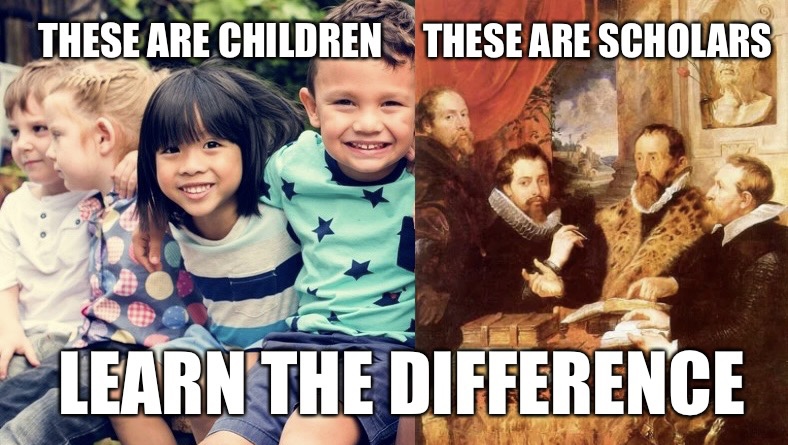
I’m curious to know who decided to refer to kids as “scholars”. As I wrote in my book, the word “scholar” conjures visions in my mind of bearded Renaissance gentlemen who stroke their beards as they contemplate the weighty issues of human existence. The reason I am so against this trend is that I feel that by calling kids “scholars”, we forget that we are dealing with young children. In my current position at a Title 1 school, the children come to school every day with all of the things they experience at home – addiction, poverty, family conflicts, etc. These effects are well-documented. I’m amazed that these kids can (for the most part) show up with joy and willingness to learn. Comparatively speaking, my life is one big First-World Problem.
When I was at the no-excuses charter school that I wrote about, I saw that it was easier to lock bathrooms, force kids to sit up with hands folded at all times, and push underperforming kids out the door if you branded them with a moniker that served to neutralize their youth. At my school, kids were referred to as “test-taking machines”. When data is king, everything else becomes reduced to a cell on a spreadsheet that shows you if you are on track or off track from your numerical goal. It’s similar to how big tech companies boast of huge revenue but overlook the fact that their employees are forced to urinate into plastic bottles in order to keep the machine grinding along.
As Haim Ginott put it, “In all situations it is my response that decides whether a crisis will be escalated or de-escalated, and a student humanized or de-humanized.” This is far easier if you remember that you are dealing with a child and not an instrument of academia. Treat someone like a machine and you will inevitably end up with a machine. Treat someone like an amazing human being and you will inevitably end up with an amazing human being.